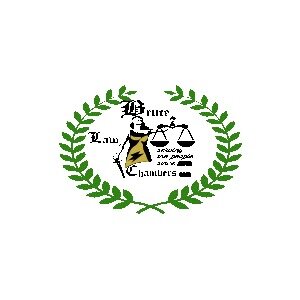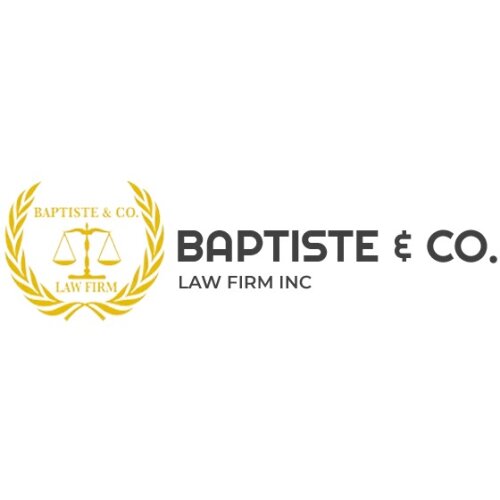Best Oil, Gas & Energy Lawyers in Kingstown
Share your needs with us, get contacted by law firms.
Free. Takes 2 min.
List of the best lawyers in Kingstown, Saint Vincent and the Grenadines
About Oil, Gas & Energy Law in Kingstown, Saint Vincent and the Grenadines
Oil, Gas & Energy law in Kingstown, Saint Vincent and the Grenadines focuses on the regulations and legal matters surrounding the exploration, production, and distribution of oil, gas, and energy resources. The energy sector in Kingstown is primarily dominated by renewable energy initiatives, but there is growing interest in exploring potential oil and gas reserves. Legal provisions in this sector cover a wide range of areas, including environmental sustainability, commercial transactions, land use, and compliance with international agreements. As the country seeks to expand its energy capabilities, understanding the legal framework is essential for both local and foreign investors.
Why You May Need a Lawyer
Legal expertise in the Oil, Gas & Energy sector might be necessary for various reasons:
- Contract Negotiation: Drafting and negotiating contracts related to exploration, production, and distribution of resources.
- Regulatory Compliance: Ensuring businesses adhere to local and international regulations and environmental standards.
- Dispute Resolution: Handling conflicts between various stakeholders, including landowners, companies, and government bodies.
- Investment Guidance: Providing counsel on investment opportunities and the associated legal implications.
- Licensing and Permits: Assisting in the acquisition of necessary licenses and permits for energy projects.
Local Laws Overview
The legal landscape for Oil, Gas & Energy in Kingstown is shaped by a number of important legislations and policies:
- Energy Regulation Act: Governs the production and distribution of energy, emphasizing sustainable and renewable sources.
- Environmental Protection Act: Sets out guidelines to minimize environmental impact and ensure sustainability in energy projects.
- Land Use and Planning Regulations: Affects where and how energy infrastructure can be built, requiring compliance with zoning laws.
- International Energy Agreements: Obligates adherence to global standards and treaties regarding sustainable energy and carbon emissions.
Frequently Asked Questions
What is the primary source of energy in Saint Vincent and the Grenadines?
The primary source of energy in Saint Vincent and the Grenadines is currently renewable sources, with a significant emphasis on hydroelectric and solar power.
Are there any oil reserves in Saint Vincent and the Grenadines?
While there have been discussions and interests in exploring potential oil reserves, no significant commercial reserves have been confirmed as of now.
How can businesses ensure compliance with energy regulations in Kingstown?
Businesses should consult with legal experts to navigate the complex regulatory environment and ensure compliance with all applicable laws and international standards.
What permits are required for starting an energy project?
Permits required include environmental permits, land use permissions, and specific energy production licenses, depending on the nature of the project.
How does the government support renewable energy projects?
The government offers incentives, such as tax breaks and grants, to support and encourage the development of renewable energy projects.
What role does the community play in energy projects?
Community consultation is often a legal requirement to ensure that energy projects meet the needs and address the concerns of local populations.
What are the penalties for non-compliance with energy laws?
Penalties for non-compliance may include fines, revocation of licenses, and legal action, depending on the severity of the breach.
Are there opportunities for foreign investment in the energy sector?
Yes, the government welcomes foreign investment, particularly in the areas of renewable energy and infrastructure development.
What environmental considerations must be taken into account?
Key environmental considerations include impact assessments, conservation of natural resources, and adherence to environmental standards to prevent degradation.
Where can I find more information on energy laws?
Information can be found through the government’s Department of Energy, legal experts specializing in energy law, and various environmental NGOs in the region.
Additional Resources
For more information and assistance, consider reaching out to the following:
- Department of Energy of Saint Vincent and the Grenadines: Offers guidance on energy policies and regulations.
- Saint Vincent and the Grenadines Bar Association: Provides a list of qualified legal professionals specializing in energy law.
- Environmental Associations: Such as the National Trust, focusing on sustainable development.
- Investment Promotion Agency: Offers support and information for foreign investors interested in the energy sector.
Next Steps
If you require legal assistance in the Oil, Gas & Energy sector in Kingstown, consider taking the following steps:
- Consult with a Legal Expert: Seek out legal professionals with experience in the local energy sector to discuss your specific needs and concerns.
- Research Regulatory Requirements: Gather information on the specific regulations and compliance requirements pertinent to your situation.
- Prepare Necessary Documentation: Organize all relevant documents and data required for legal review and compliance verification.
- Engage with Government Bodies: Reach out to relevant governmental departments for guidance on procedures and potential support.
- Continual Education: Stay informed about changes in laws and regulations by subscribing to industry updates and attending relevant seminars or workshops.
Lawzana helps you find the best lawyers and law firms in Kingstown through a curated and pre-screened list of qualified legal professionals. Our platform offers rankings and detailed profiles of attorneys and law firms, allowing you to compare based on practice areas, including Oil, Gas & Energy, experience, and client feedback.
Each profile includes a description of the firm's areas of practice, client reviews, team members and partners, year of establishment, spoken languages, office locations, contact information, social media presence, and any published articles or resources. Most firms on our platform speak English and are experienced in both local and international legal matters.
Get a quote from top-rated law firms in Kingstown, Saint Vincent and the Grenadines — quickly, securely, and without unnecessary hassle.
Disclaimer:
The information provided on this page is for general informational purposes only and does not constitute legal advice. While we strive to ensure the accuracy and relevance of the content, legal information may change over time, and interpretations of the law can vary. You should always consult with a qualified legal professional for advice specific to your situation.
We disclaim all liability for actions taken or not taken based on the content of this page. If you believe any information is incorrect or outdated, please contact us, and we will review and update it where appropriate.











